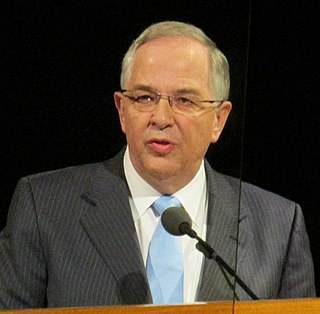A Quote by Phil Vischer
The messages our kids receive from teachers, coaches--and even, with the best intentions, from us - can push them toward pride or despair...toward self-righteousness or self-hatred.
Related Quotes
Everybody wants life to speak to them with special kindness. Every personal story begs to be steered toward reverie, toward some relief from unpleasant truths: That you are a self, that beyond anything else you want the best for that self. That, if it is to be you or someone else, you need it to be you, no matter what.
Of all the rocks upon which we build our lives, we are reminded today that family is the most important. And we are called to recognize and honor how critical every father is to that foundation. They are teachers and coaches. They are mentors and role models. They are examples of success and the men who constantly push us toward it.
The myth of the self-sufficient individual and of the self-sufficient, protected, and protective familytells us that those who need help are ultimately inadequate. And it tells us that for a family to need help--or at least to admit it publicly--is to confess failure. Similarly, to give help, however generously, is to acknowledge the inadequacy of the recipients and indirectly to condemn them, to stigmatize them, and even to weaken what impulse they have toward self-sufficiency.
The journey toward authenticity, toward becoming whole is made palpable in Maureen Seaton's Sex Talks to Girls: A Memoir. It shines its considerable light on the passage from religion toward faith, from self-medication to sobriety, from daughterhood to motherhood, from being the disembodied 'good girl' to embracing her own bad lesbian self. In crisp chapters, Seaton leads us, step-by-step, over this harrowing and blissful road, so distinct from yet so much like our own.
We must move from ... the primacy of technology toward considerations of social justice and equity, from the dictates of organizational convenience toward the aspirations ofself realization and learning, from authoritarianism and dogmatism toward more participation, from uniformity and centralization toward diversity and pluralism, from the concept of work as hard and unavoidable, from life as nasty, brutish, and short toward work as purpose and self~fulfillment, a recognition of leisure as a valid activity in itself.
People do not drift toward Holiness. Apart from grace-driven effort, people do not gravitate toward godliness, prayer, obedience to Scripture, faith, and delight in the Lord. We drift toward compromise and call it tolerance; we drift toward disobedience and call it freedom; we drift toward superstition and call it faith. We cherish the indiscipline of lost self-control and call it relaxation; we slouch toward prayerlessness and delude ourselves into thinking we have escaped legalism; we slide toward godlessness and convince ourselves we have been liberated.



































